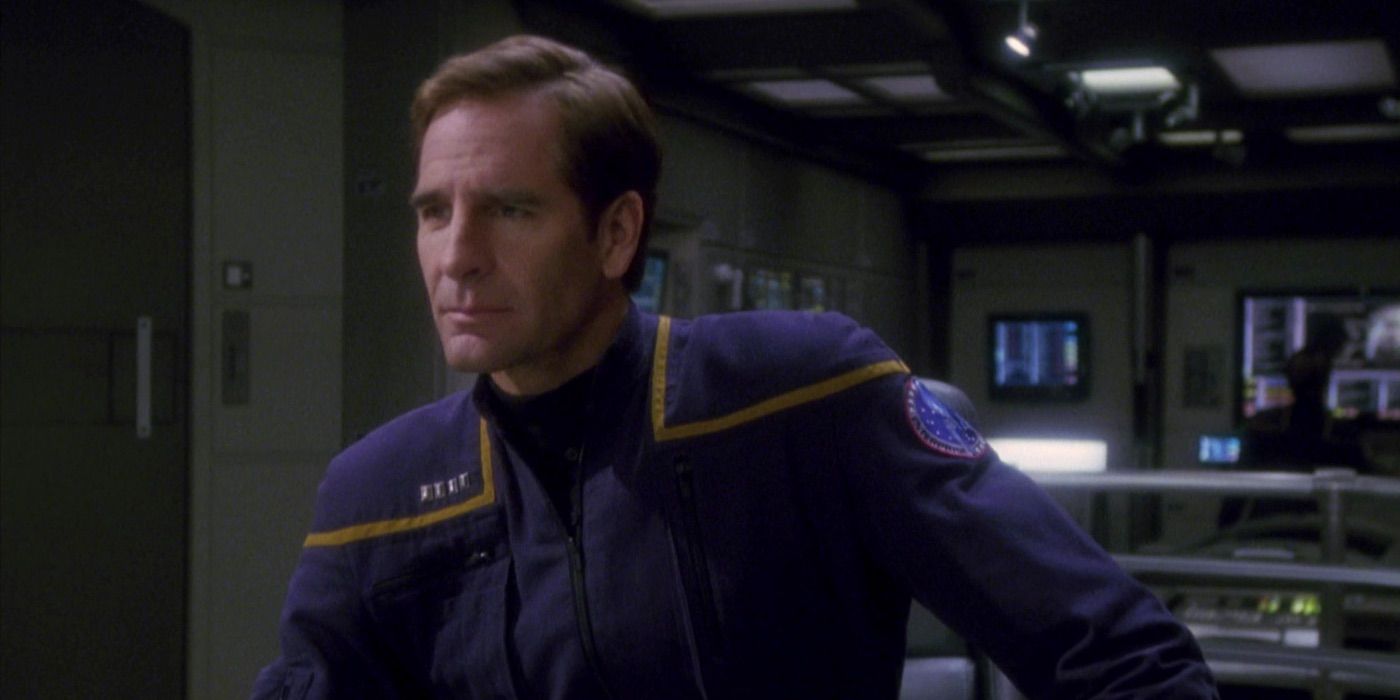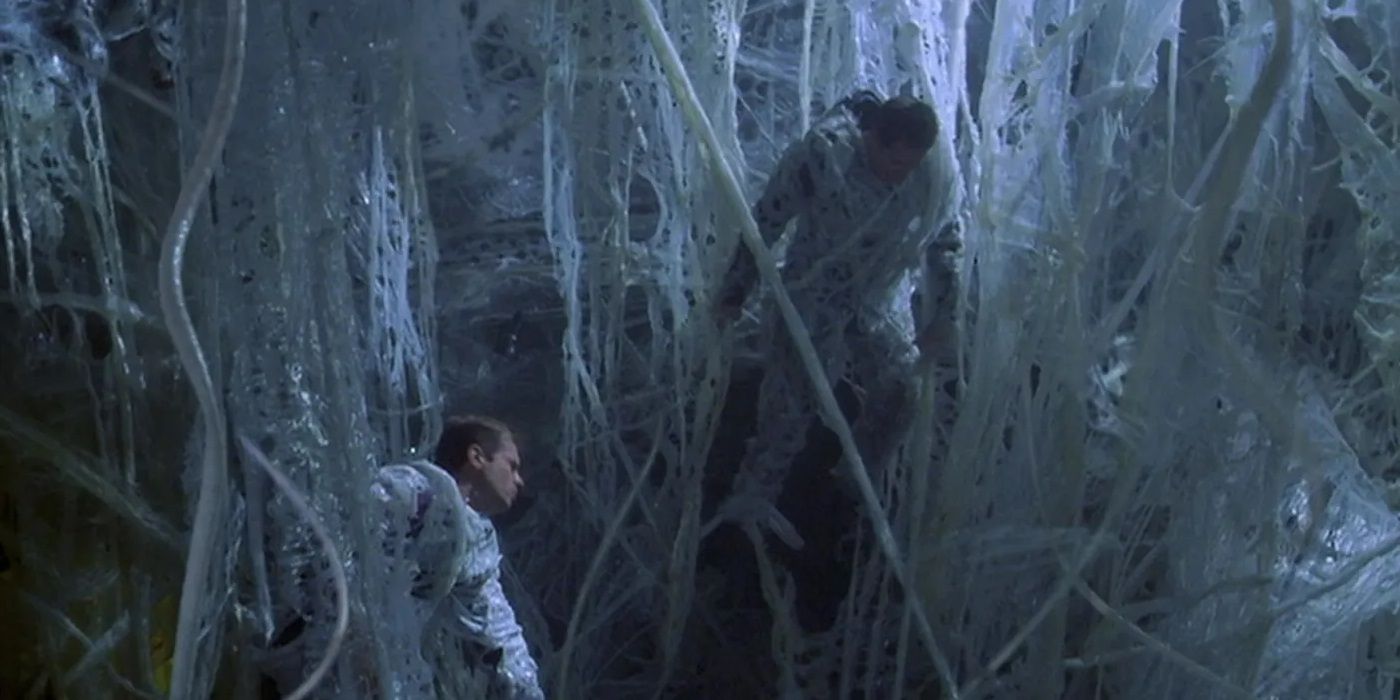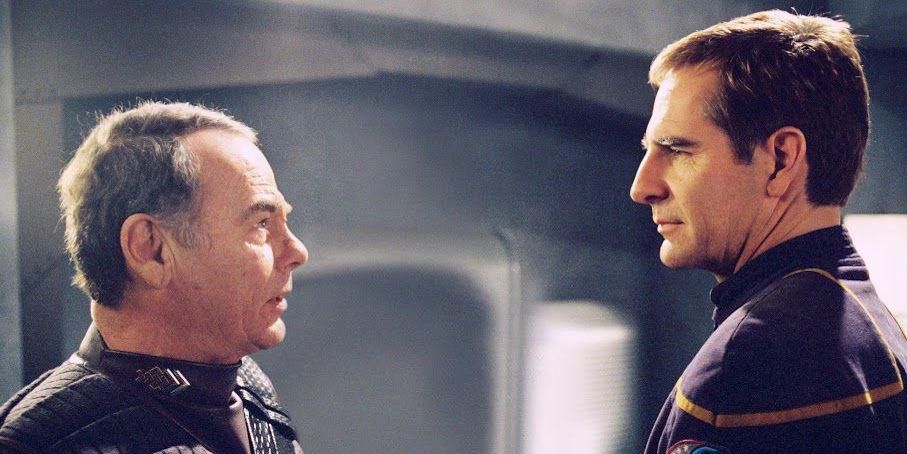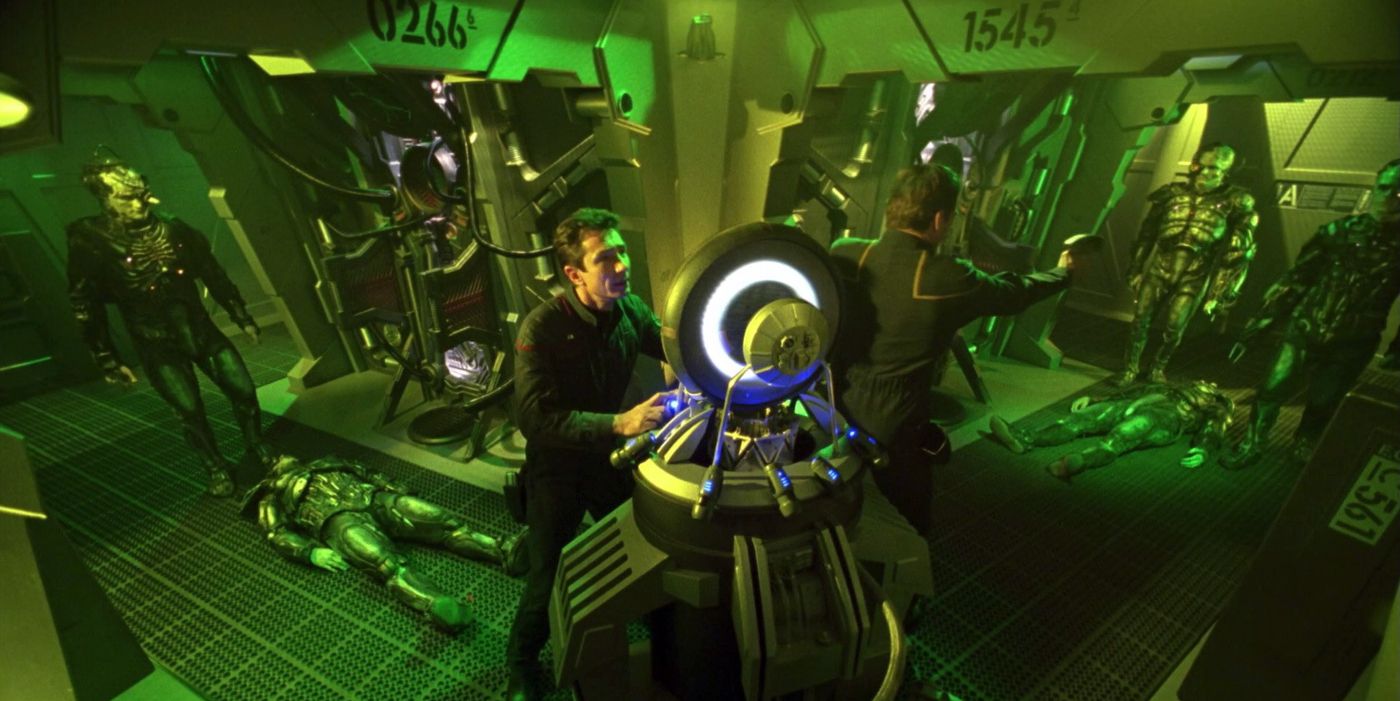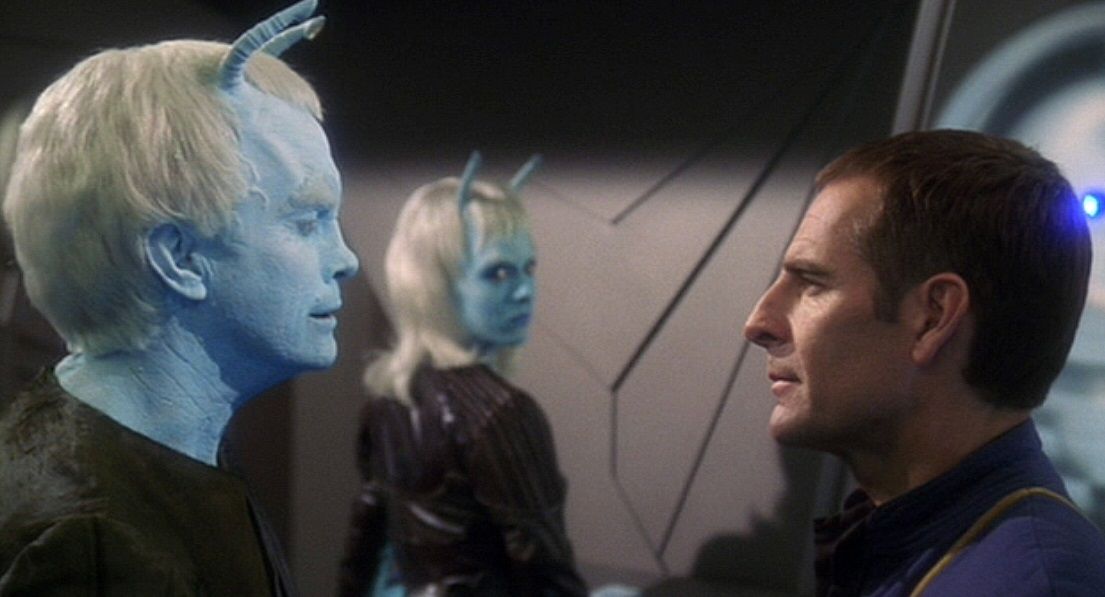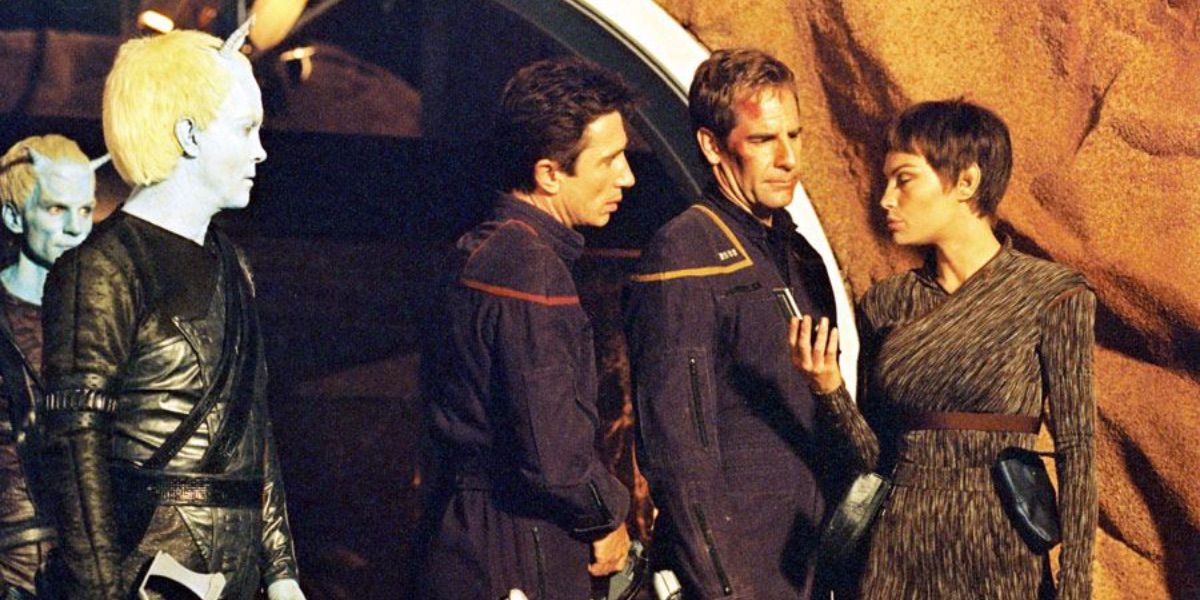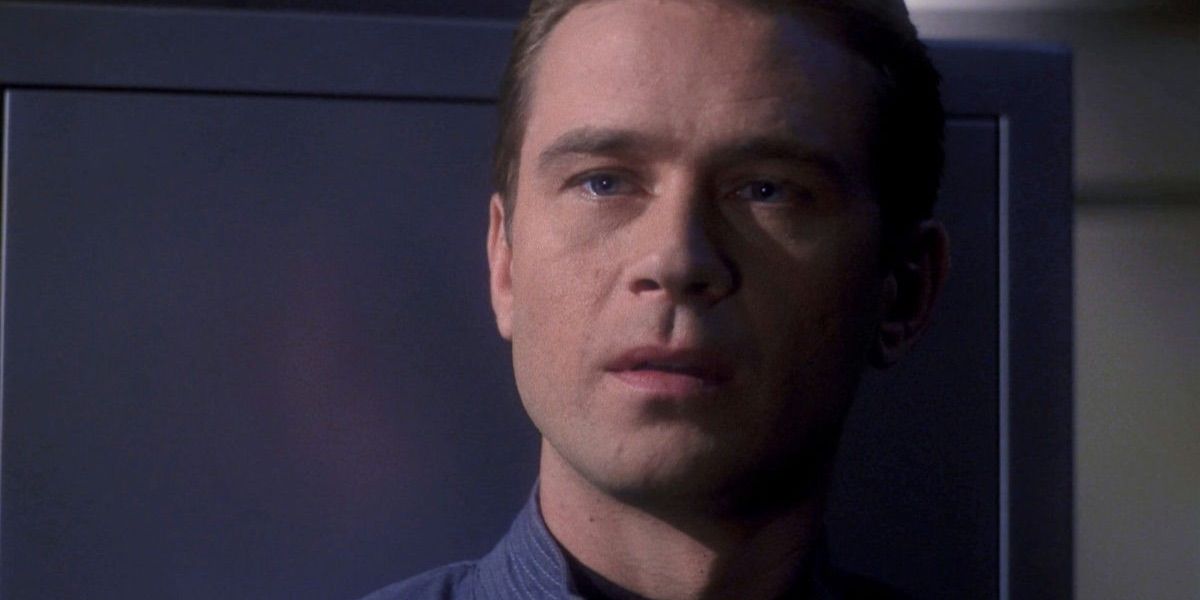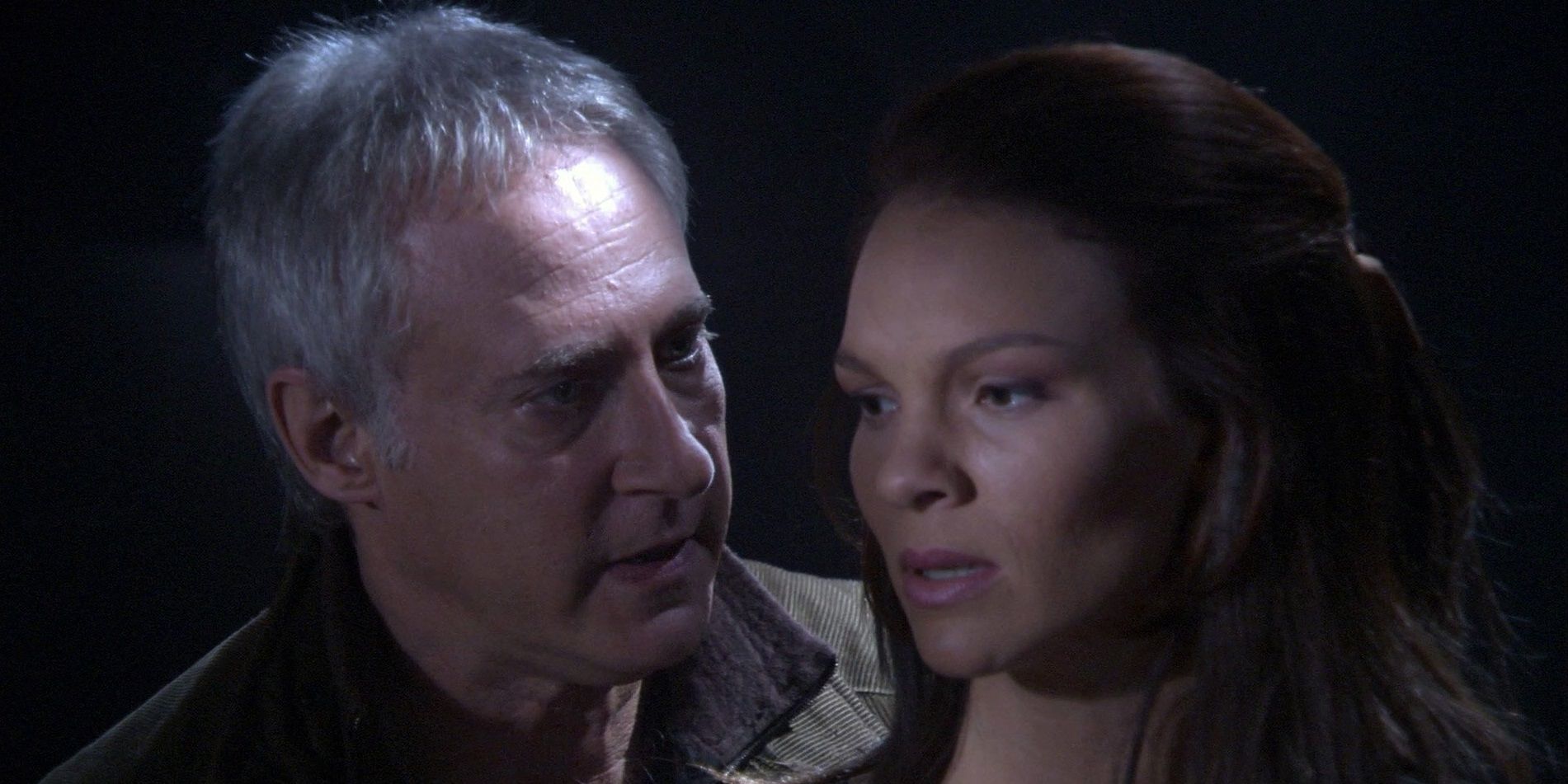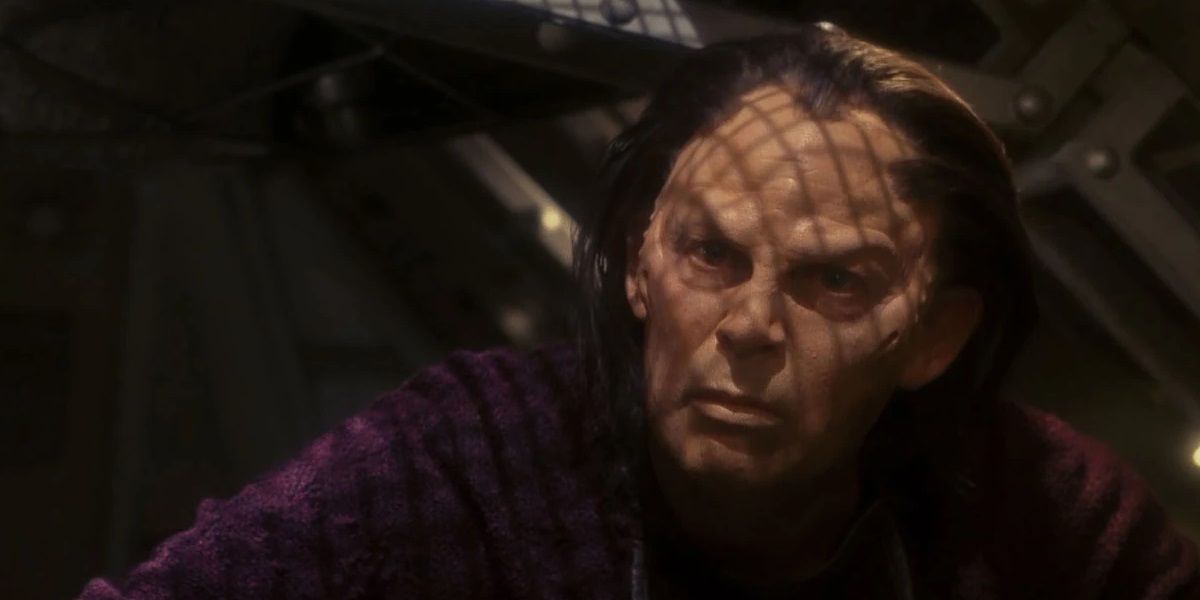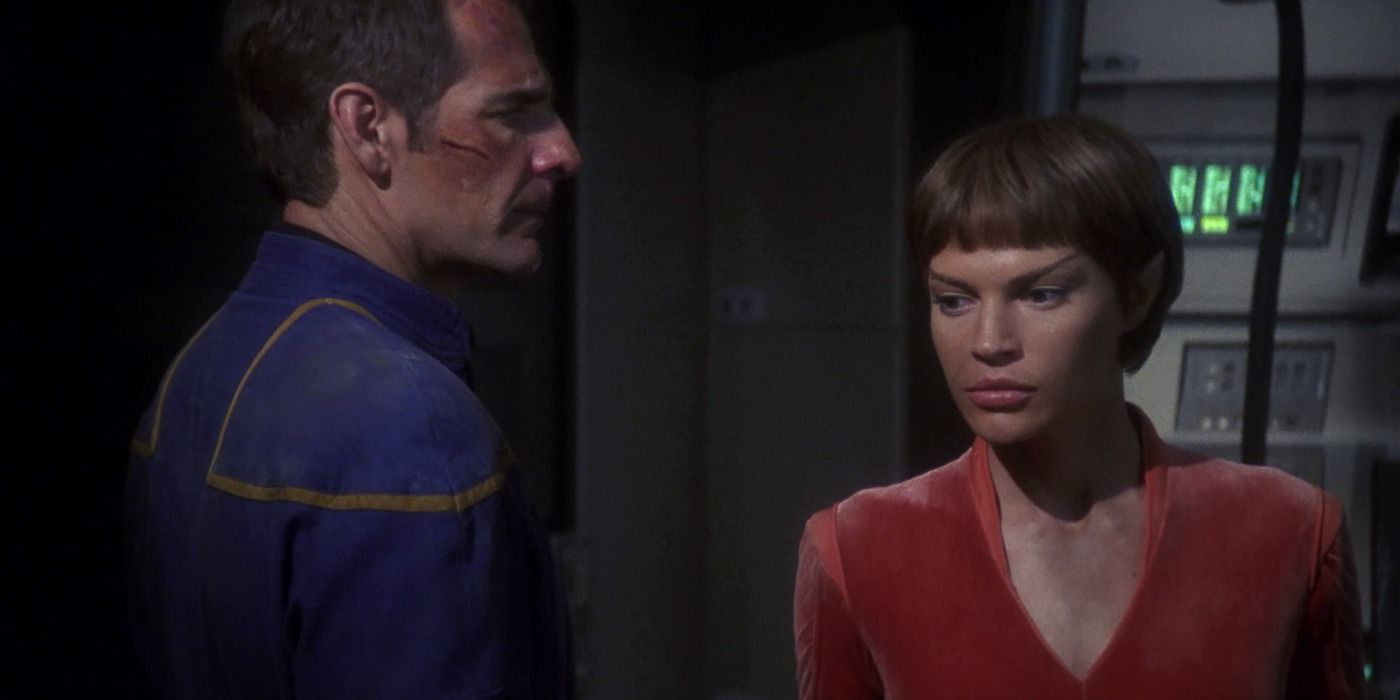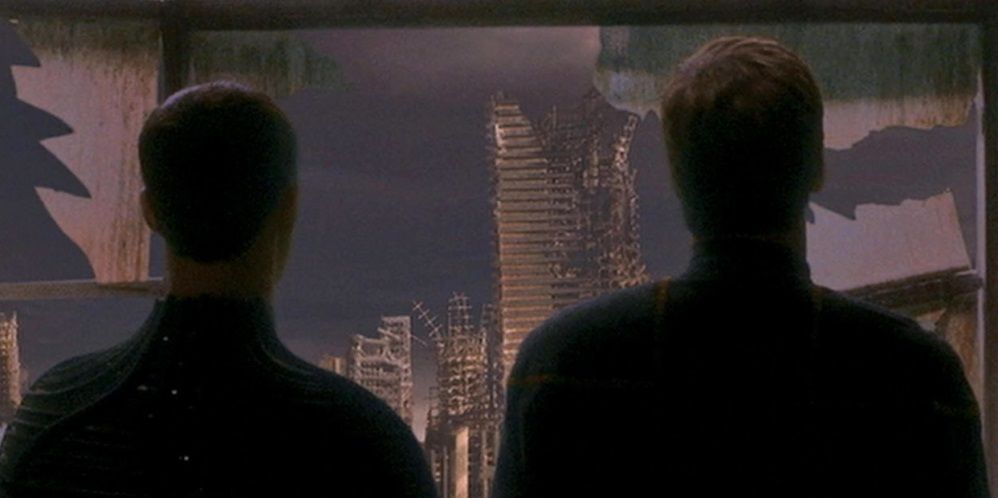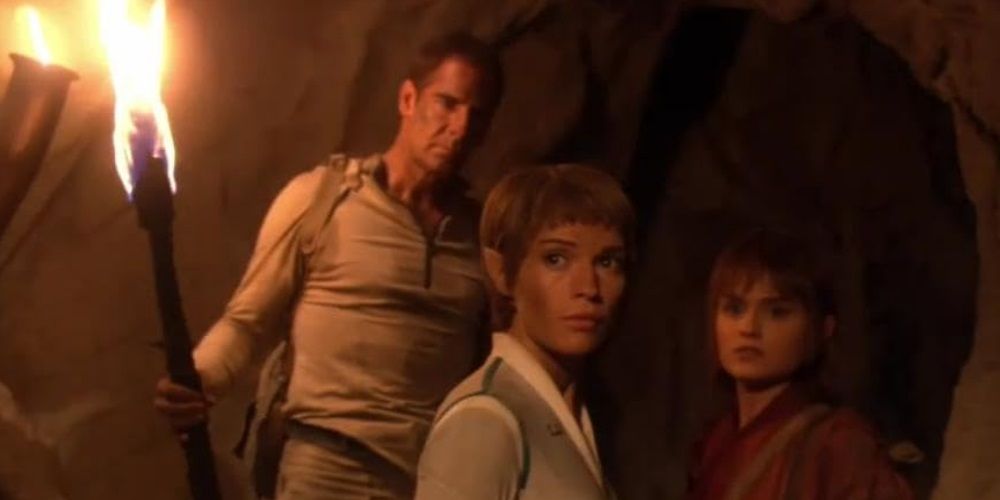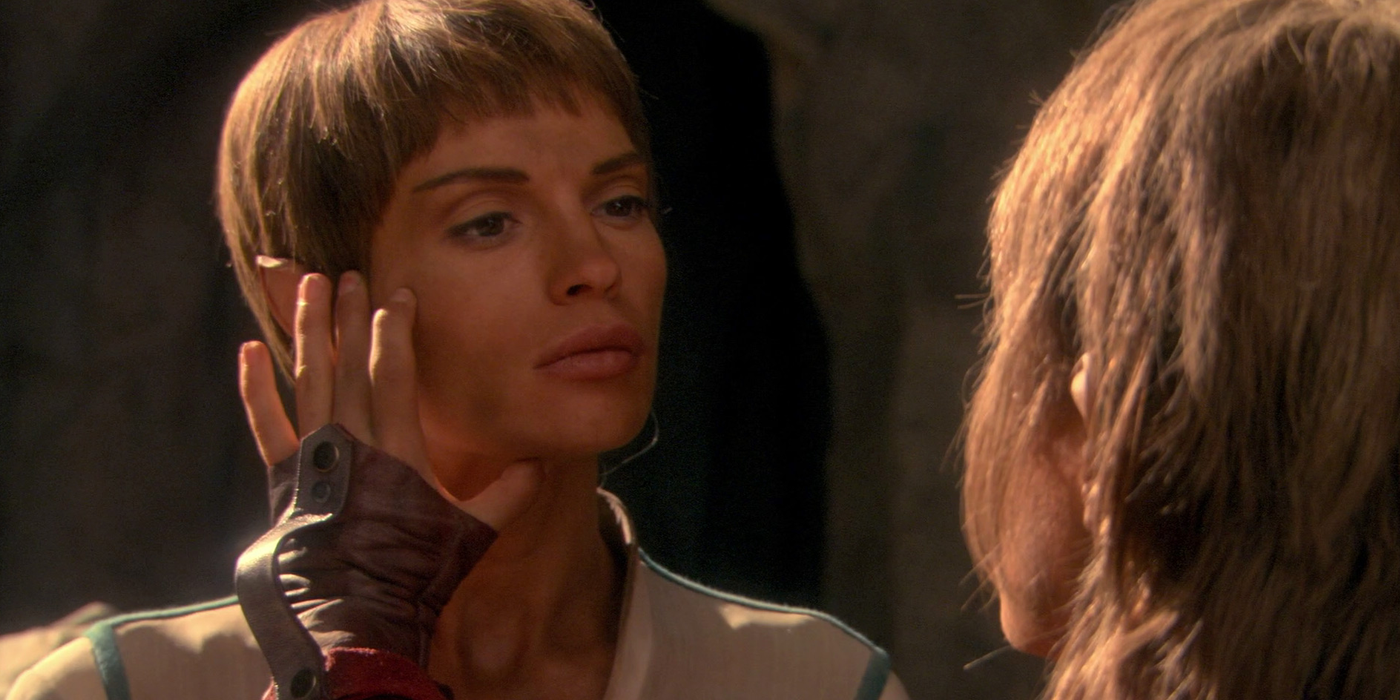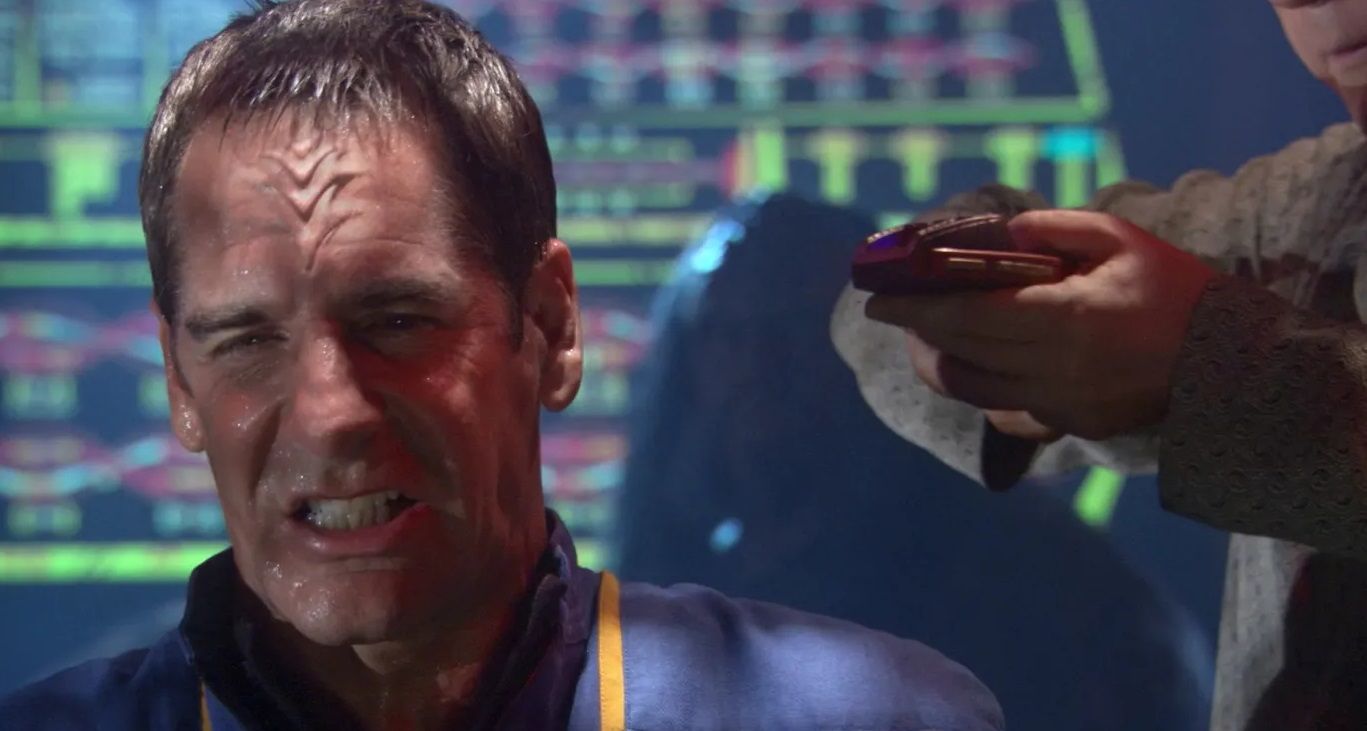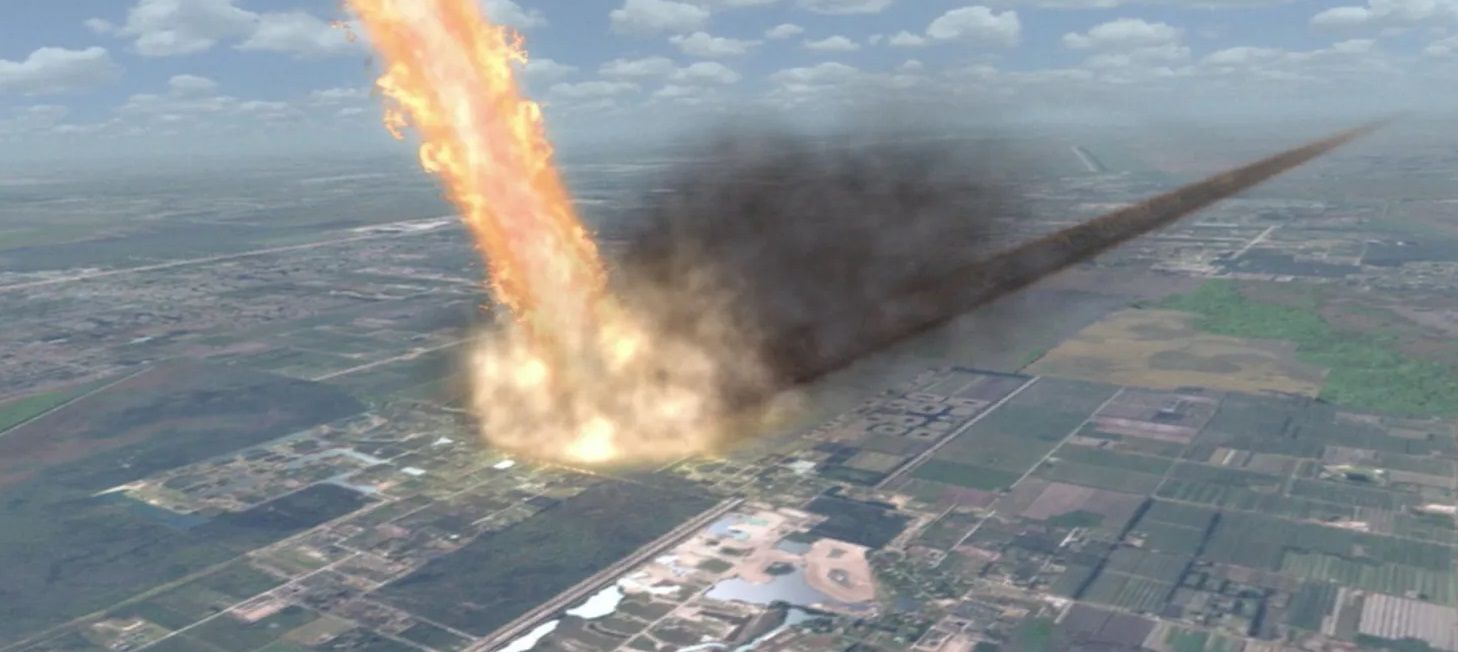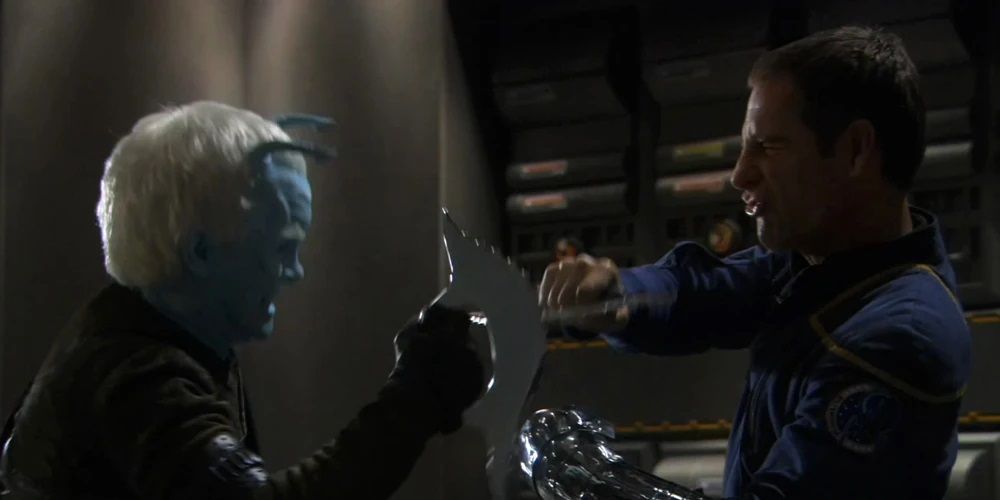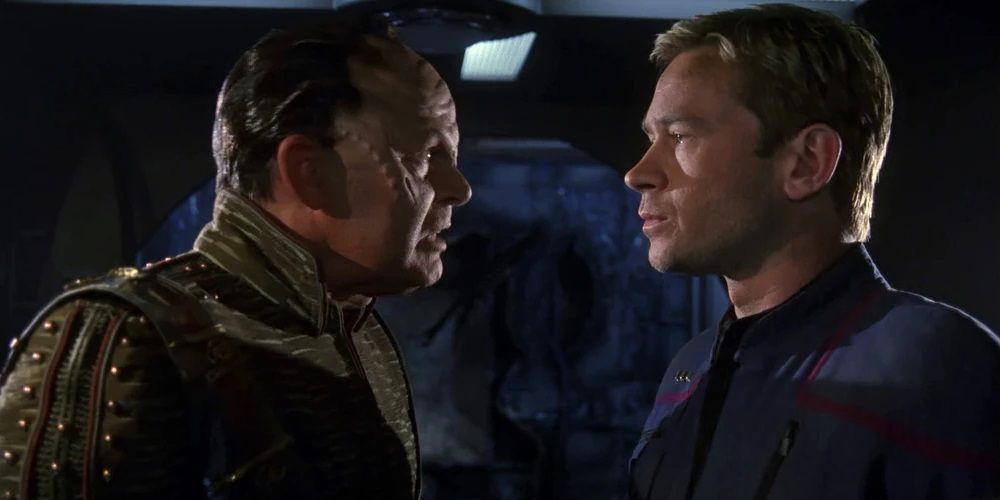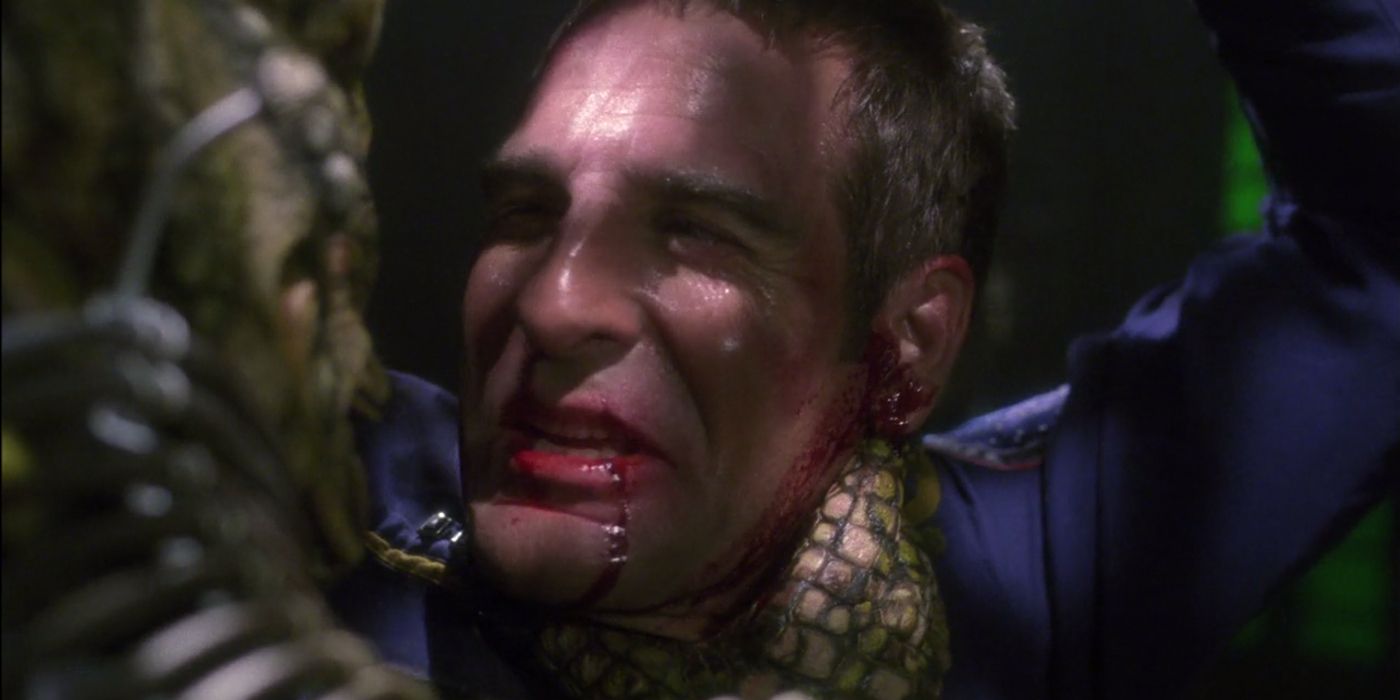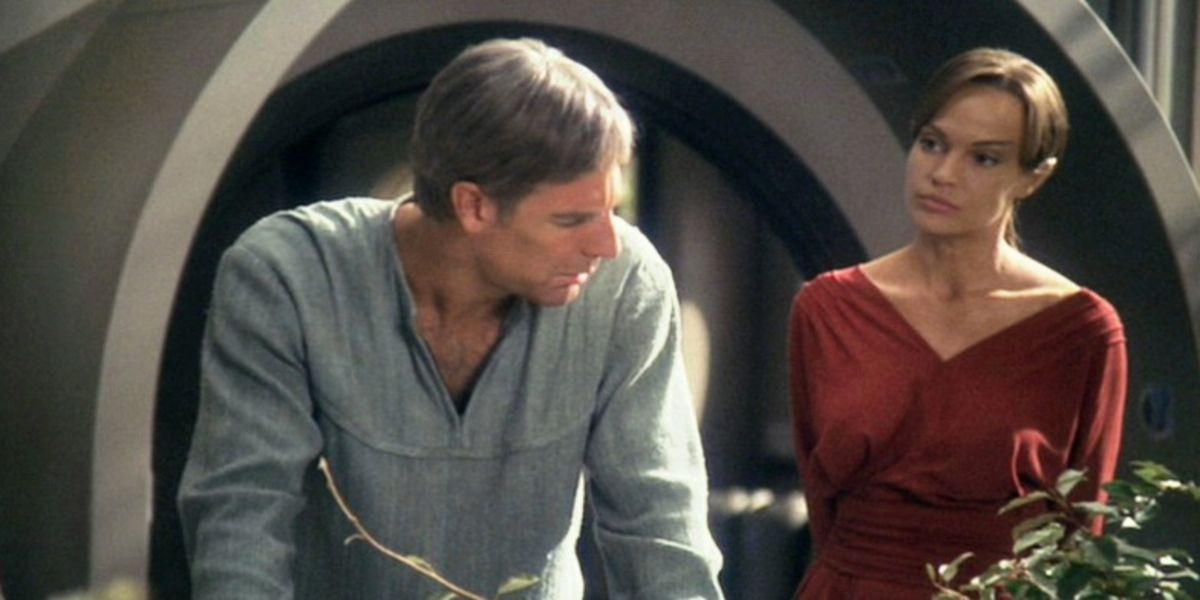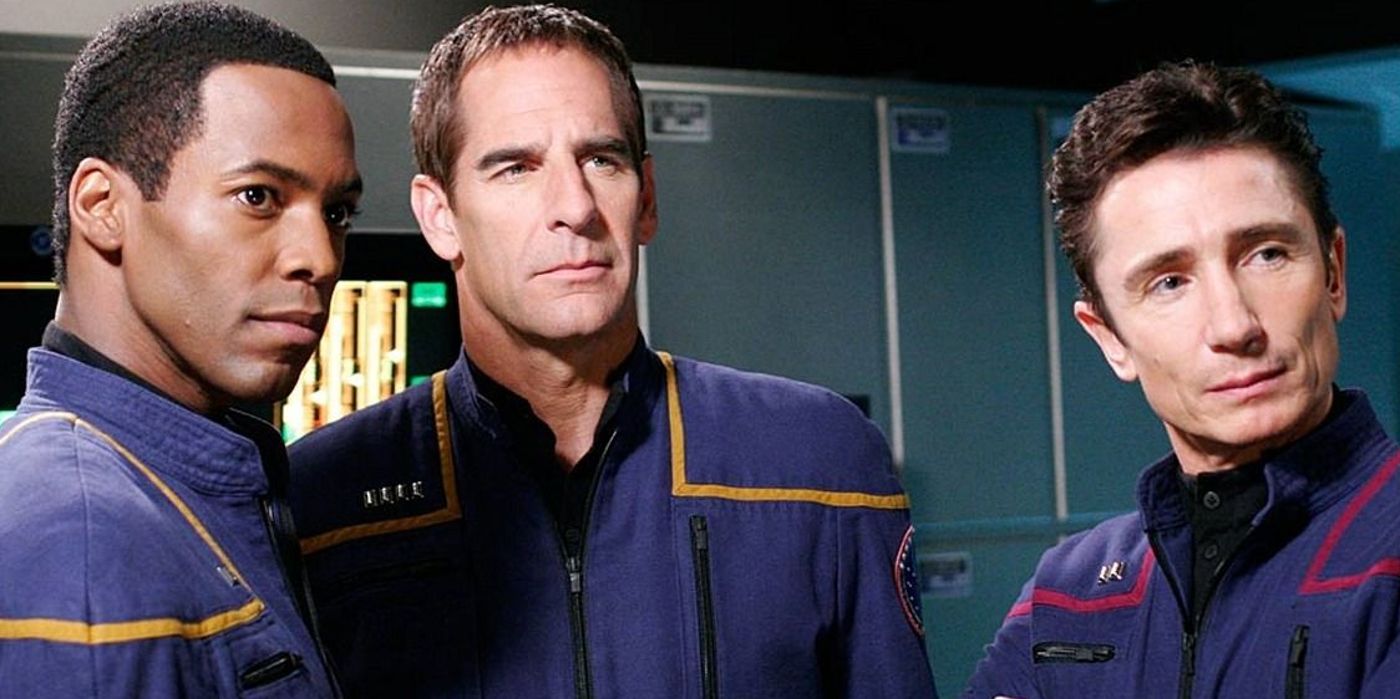
Boldly Go: Ranking the 20 Greatest Episodes of Star Trek: Enterprise

Discover the top 20 must-watch episodes of Star Trek: Enterprise, including thrilling moments like the explosive premiere Broken Bow and the finale that will leave you breathless, Terra Prime Prepare for an unforgettable journey through space and time with Captain Archer and his crew
Summary
Star Trek: Enterprise is a character-driven prequel that explores the origins and moral ambiguities of various topics, adding depth to the different characters.
The first episode, "Broken Bow," offers a thrilling and gritty introduction as an inexperienced crew navigates through prejudices and confronts ethical dilemmas. The series presents captivating episodes that explore themes of prejudice, ethics, loyalty, and the pursuit of the greater good, all within the uncharted territories of space.
Star Trek: Enterprise premiered in 2001 as a character-driven prequel to the original Star Trek series. Keeping true to the franchise's core values, the show delves into the origins and moral complexities of various topics, exploring ethical dilemmas and assumptions while providing a deeper understanding of the diverse characters. Set in the 22nd century, the series follows a new and untested crew as they embark on thrilling adventures in an unknown universe.
Leading the way is Captain Jonathan Archer (played by Scott Bakula), a flawed yet relatable starship commander with a background in experimental warp technology. Through his leadership, Star Trek: Enterprise creates a unique and approachable atmosphere that contrasts the harsh realities of outer space, allowing viewers to form an immediate connection with the main characters. The premiere episode sets the stage for the series, highlighting the challenges of prejudice in first encounters and establishing the Enterprise NX-01 as a pioneering force among the stars. Without further ado, here are the top 20 episodes of Star Trek: Enterprise.
20 "Broken Bow" (Enterprise Season 1, Episodes 1 & 2)
Star Trek: Enterprise's premiere introduces Captain Jonathan Archer, Subcommander T'Pol (Jolene Blalock), and the crew of the Enterprise NX-01. "Broken Bow" sets the stage with United Earth's First Contact with the Klingons, offering a fast-paced narrative that surprises viewers with an inexperienced crew, inferior technology, and less familiarity with space exploration compared to other Star Trek series
19 "Vox Sola" (Enterprise Season 1, Episode 21)
. While it took time for the show to find its place in the franchise, this first episode is a gritty and adventure-filled initial step into the vast unknown, ultimately becoming notorious for introducing the sexually charged elements, such as the decontamination scene, that would define Enterprise's 4-season run.
"Vox Sola" provides an intriguing exploration of the "seek out new life" principle in Starfleet's Captain's Oath. The episode commences with a breakdown in communication and an unforeseen cultural taboo, coinciding with the unexpected arrival of an undiscovered species on board. Seeking connection, this symbiotic lifeform ensnares four crew members. In a groundbreaking twist, the creature utilizes a fusion of musical notes and mathematical equations as its language, presenting Star Trek with its first-ever musical episode. This delightful installment rekindles the show's sense of wonder and fascination with the uncharted mysteries of the universe.
18 "Detained" (Enterprise Season 1, Episode 21)
17 "Regeneration" (Enterprise Season 2, Episode 23)
: "Detained" – A Powerful Allegory on Prejudice with a Noteworthy Quantum Leap ReunionIn this thought-provoking episode, notable for reuniting Scott Bakula with Dean Stockwell from Quantum Leap, "Detained" serves as a dark allegory highlighting the devastating consequences of prejudice. When Captain Archer and Travis Mayweather find themselves abruptly awakened in a Tandaran internment camp, they are confronted by Colonel Grat, a morally complex character brilliantly portrayed by Dean Stockwell. With the Enterprise rendered unreachable, this gripping episode skillfully reflects the pervasive nature of discrimination operating on various social levels.
The discovery and accidental reactivation of cybernetic remnants from events in Star Trek: First Contact in the Arctic prompt Archer and his crew to intervene and halt the Borg's advance. As Doctor Phlox falls victim to assimilation by Borg nanites on Enterprise, the crew faces a time-sensitive struggle against an ever-changing, technologically advanced enemy from the distant future. This episode alters the history of Star Trek: The Next Generation by showcasing the crew's lack of awareness about the insidious threat posed by the Borg and the transmission of Earth's coordinates to their collective.
16 "Proving Ground" (Enterprise Season 3, Episode 13)
With the loss of navigational data crippling Enterprise, embarking on a perilous journey through the spatial anomalies of the Delphic Expanse becomes uncertain and potentially lethal. Severely damaged by a treacherous vortex, the Enterprise manages to escape with the help of Andorian Commander Shran (Jeffrey Combs). This episode offers a captivating exploration of character development and motivations, weaving a complex narrative of righteous agendas clashing against fragile trust. In a nerve-wracking test reminiscent of Captain Kirk's Corbomite maneuver, Archer boldly threatens to activate the Xindi weapon's detonation sequence.
15 "The Andorian Incident" (Enterprise Season 1, Episode 7)
Star Trek: Enterprise's first season is graced with a remarkable episode that takes viewers on an unexpected journey to the revered P'Jem Vulcan monastery. Directed by Roxann Dawson, known for her work on Star Trek: Voyager, "The Andorian Incident" showcases the intriguing dynamic between the Andorians and the Vulcans, breathing new life into the former who were initially introduced in Star Trek: The Original Series. This pivotal episode introduces Commander Shran, a captivating character whose suspicions regarding the Vulcans' actions are validated when it is revealed that the monastery is harboring a hidden surveillance outpost.
14 "Similitude" (Enterprise Season 3, Episode 10)
"Similitude" offers a thought-provoking exploration of ethics and accountability with sociological relevance. In a desperate attempt to save the severely injured Commander Trip Tucker (Connor Trinneer), Archer and Phlox devise a morally ambiguous plan - using a mimetic symbiote as a neurological donor. However, this procedure would result in the death of the donor, named Sim, who could potentially prolong his own life through experimental surgery. This uncomfortable situation bears a striking resemblance to the Star Trek: Voyager episode "Tuvix" from season 2, episode 24, as it grapples with the delicate balance between the concept of 'the greater good' and humanistic values.
13 "The Augments" (Enterprise Season 4, Episode 6)
The final installment of a three-part storyline is heavily influenced by Star Trek's previous encounters with augmented humans. In "The Augments," the narrative indirectly draws a parallel between Khan Noonien Singh (portrayed by Ricardo Montalban) and a group of genetically engineered individuals, all possessing an aggressive nature and a desire for dominance. This episode is particularly noteworthy for bringing together LeVar Burton and Brent Spiner from Star Trek: The Next Generation, with Burton as the director and Spiner as a guest star. The storyline unfolds with perilous encounters with deadly pathogens and ventures into the vastness of outer space. It delves into themes of attempted genocide, the instigation of war, mutiny, vengeance, and ultimately, murder.
12 "Stratagem" (Enterprise Season 3, Episode 14)
A series of clever tricks unfolds in "Stratagem," which begins with Archer and Degra (played by Randy Oglesby), a Xindi Council member, appearing worn out and exhausted. This episode of Enterprise serves as a gripping examination of two rivals forced to be together, seemingly three years ahead. Degra grapples with a missing memory and doubts regarding the credibility of his friend's explanations, resulting in a delicate balance of collaboration and suspicion from both parties. Meanwhile, Archer cautiously searches for the crucial information that could potentially save Earth.
11 "Damage" (Enterprise Season 3, Episode 19)
As Earth faces imminent destruction, the Enterprise suffers a devastating attack, rendering it defenseless and adrift. Captain Archer confronts a moral dilemma when they encounter an Illyrian spacecraft and ultimately resort to taking their warp coil to restore the Enterprise's engines. Burdened with guilt yet resolute to fulfill his mission, Archer rationalizes that his choice was essential but visibly buckles under the weight of responsibility. This gripping and pivotal episode raises the poignant question: "Does the desired outcome justify the methods employed?"
10 "Shockwave, Part 1" (Enterprise Season 1, Episode 26)
9 "Awakening" (Enterprise Season 4, Episode 8)
"In what is undoubtedly one of the most captivating introductions in the history of Star Trek episodes, a disastrous mishap occurs when an Enterprise shuttle inadvertently triggers a catastrophic atmospheric ignition on Paraagan II, resulting in the tragic annihilation of all 3,600 settlers residing on the lunar surface. The aftermath of this harrowing event leads to the Enterprise receiving orders to return to Earth, abruptly cancelling their ongoing mission. However, this is when a temporal agent makes their entrance. Through the intricate manipulation of time, Archer is transported backwards and subsequently forwards, ultimately unravelling evidence of deliberate sabotage. Unfortunately, this revelation leaves him marooned amidst a desolate and desecrated terrain, with no feasible means of returning home. The culmination of the first season of Enterprise reaches its climax with a gripping cliffhanger, an episode that epitomizes tension and discomfort while remaining remarkably subdued and profoundly moving. The amalgamation of intense and contradictory emotions imbues this particular episode with a profound sense of significance and intricacy."
In "Awakening," the Star Trek: The Original Series episode, the characters of Vulcan icon T'Pau (Kara Zediker) and Surak (Bruce Gray) are skillfully developed. This allegorical installment portrays the Vulcan High Council as the Catholic Church, and the Syrannites of Vulcan as Protestant Reformists. Furthermore, it offers a thought-provoking critique on the abuse of governmental power, where terrorism is exploited to justify intrusive surveillance and control. As Archer and T'Pol establish contact with the Syrannite group and unveil Archer's possession of Surak's katra, the Vulcan authorities swiftly plan an assault.
8 "Kir'Shara" (Enterprise Season 4, Episode 9)
7 "Divergence" (Enterprise Season 4, Episode 16)
"Kir'Shara" delves deeper into the themes of reformation and enlightenment introduced in the previous Enterprise episode, "Kir'Shara". This gripping conclusion raises the stakes, unveiling a series of shocking revelations, stark contrasts, and lingering uncertainties. By shedding light on the convoluted Vulcan political landscape, the episode provides much-needed clarity while also highlighting the unsettling nature of political manipulation and maneuvering, especially when juxtaposed with the peaceful ideals embraced by the Syrannite group and the core value of peace embodied in Star Trek. As the Enterprise strives to prevent a devastating war between the Vulcans and Andorians, Archer, T'Pol, and T'Pau uncover the true motives behind the Embassy bombing, realizing it was merely a ploy to instigate conflict.
The successful two-part Klingon-centered storyline in Star Trek brings together multiple threads. In the tense second episode titled "Divergence," Doctor Phlox races against time to find a cure for the Klingon virus before the facility, along with everyone inside, is destroyed to contain the spread of the disease. Adding to the intrigue, the enigmatic and ethically dubious organization known as Section 31 plays a significant role. Lieutenant Malcolm Reed, the Armory Officer, finds himself locked in the brig of the Enterprise due to his involvement with this secretive agency. This storyline captivates with its exploration of loyalty, morality, and ethics, aligning with Star Trek: Enterprise's objective to delve into these themes from a darker and character-focused perspective.
6 "The Expanse" (Enterprise Season 2, Episode 26)
5 "United" (Enterprise Season 4, Episode 13)
The season 2 finale of Star Trek: Enterprise delivers a shocking twist that disrupts the show's established order, paving the way for a more intense and serialized season 3. This episode, titled "The Expanse," introduces the Xindi, a new alien threat, and lays the groundwork for the entire third season, which is further intensified by the Temporal War of Star Trek: Enterprise. Earth suffers devastating losses in a surprise attack, leading to significant character development for T'Pol and a deep exploration of raw emotional instincts, especially for Trip, who tragically loses his sister in the assault.
In this Emmy-nominated episode, Star Trek: Enterprise reaches a turning point by uniting the founding species of the not-yet Federation. Archer must enlist the help of the Vulcans, Andorians, and Tellarites to combat an unidentified Romulan marauder and rescue his missing crew members. When Shran challenges the Tellerite Naarg (Kevin Brief) to a duel, Archer steps in as the negotiator, successfully preserving diplomacy and gaining the cooperation of both races. This episode delivers essential insights into the characters and the foundational development of Star Trek.
4 "The Council" (Enterprise Season 3, Episode 22)
"A day can bring about significant changes," remarks Captain Archer in this emotionally charged episode that introduces a profound Vulcan principle: the greater good surpasses individual interests. In "The Council," the Enterprise crew finally unites with the disparate factions of the Xindi, resulting in an unpredictable series of events. As tensions escalate rapidly, the Xindi Council becomes fractured, leading to abductions, murder, and the reshaping of allegiances. This pivotal episode propels the Xindi narrative towards a heart-wrenching climax and unveils the formidable super-weapon designed to annihilate Earth.
3 "Azati Prime" (Enterprise Season 3, Episode 18)
"Azati Prime" takes readers on an emotional rollercoaster of caution, triumph, and defeat as the crew of the Enterprise embarks on a mission to locate the Xindi weapon and dismantle it. Despite facing obstacles from temporal agents, enduring a failed suicide mission, and enduring a brutal interrogation, the episode presents a series of poignant and impactful moments. In this Enterprise episode, a stark yet powerful contrast emerges between bleakness and bittersweetness as Captain Archer stoically challenges his captors while slowly gaining their trust.
2 "Twilight" (Enterprise Season 3, Episode 8)
1 "Terra Prime" (Enterprise Season 4, Episode 21)
"Twilight" presents a captivating tale set in a parallel universe with an impending doom that seems to loop back upon itself. As Archer relinquishes his captaincy, his unexpected diagnosis not only alters his own path but also impacts the lives of the Enterprise crew. This timeless masterpiece from Enterprise's third season delves deep into the emotional aftermath of adapting to a life-altering condition and the profound sense of responsibility in caring for another amidst their struggles. Ultimately, it weaves a poignant love story illustrating themes of sacrifice and unwavering loyalty, subtly resonating with the iconic Star Trek ethos: Let me help.Unofficially recognized as Star Trek: Enterprise's true and most befitting final episode, "Terra Prime" embodies the fundamental principles that Star Trek holds dear. In this compelling episode, Captain Archer delivers his most stirring speech of the series, advocating for unity and harmony among different worlds. This poignant message carries even more weight in the face of opposition from a xenophobic hate group determined to sow division and uphold the idea of absolute purity. It serves as a symbolic tribute to one of Star Trek's core ideals and offers a glimpse into the formation of the United Federation of Planets.
